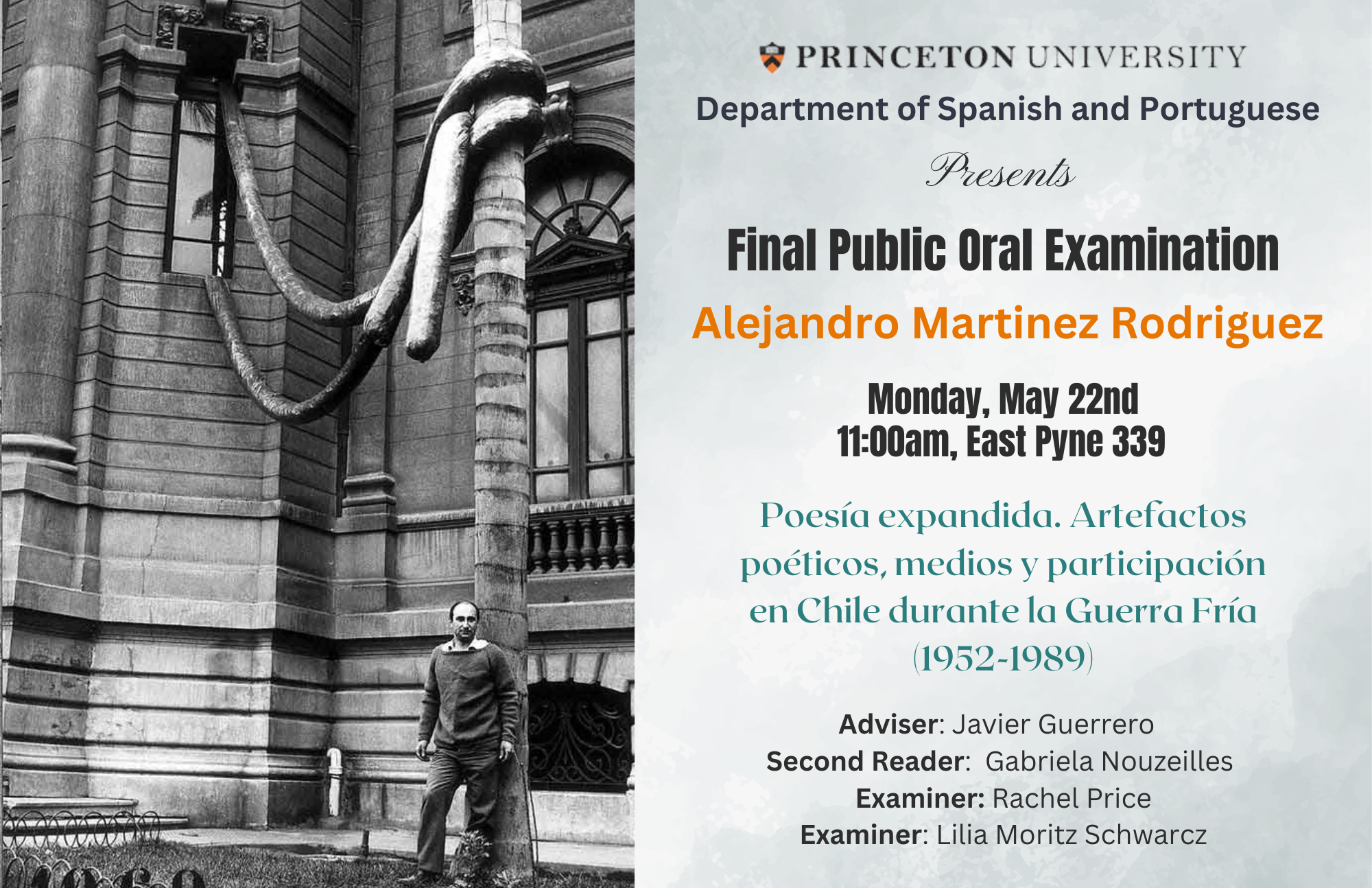Tesis doctoral defendida en Princeton University.
Resumen:
Poesía expandida. Artefactos poéticos, medios y participación en Chile durante la Guerra Fría (1952-1989) examines the role of expanded poetry in Chile as an imaginative response to the Cold War, highlighting its expansive and political nature through the analysis of four Chilean poets and artists: Nicanor Parra, Juan Pablo Langlois, Guillermo Deisler, and Cecilia Vicuña. During the neo-avant-garde movement of the 1960s and 1970s, two dominant ideological narratives emerged in the realm of poetry – the autonomous poetry or poetry outside of history, as advocated by Octavio Paz, and the committed poetry, exemplified by Pablo Neruda. This polarization reflected the cultural policies of the Cold War, where the United States supported a model of cultural freedom while the Soviet Union advocated for realism and state commitment in the arts. In this context, Chilean expanded poetry challenged the boundaries between artistic disciplines and genres, reconceptualized the role of the author, and emphasized the active participation of the reader in the production of meaning.
The dissertation analyzes various poetic practices such as installations, urban interventions, mail art, postcards, found objects, artist’s books, video, street actions, and performances, arguing that these practices not only question the rigid structures of literature and art as institutions of power but also recover the originally expansive and creative dimension of poetry. Furthermore, it contends that expanded poetry goes beyond merely extending the medium by seeking to intervene in other public spheres, opening up the poetic space to the creative participation of the reader, and promoting political imagination.
Within the framework of an Inter-American Cold War, where Chile played a crucial role, the dissertation proposes that expanded poetry constitutes a form of imaginative confrontation to the Cold War, transcending ideological dichotomies and delving into diverse territories, bodies, and experiences to generate new forms of participation and collective creation through the works of Parra, Langlois, Deisler, and Vicuña. By examining these four cases, this research contributes to the understanding of how poetry served as a vehicle for political imagination and expansion beyond traditional artistic genres and media in the context of the Cold War.
